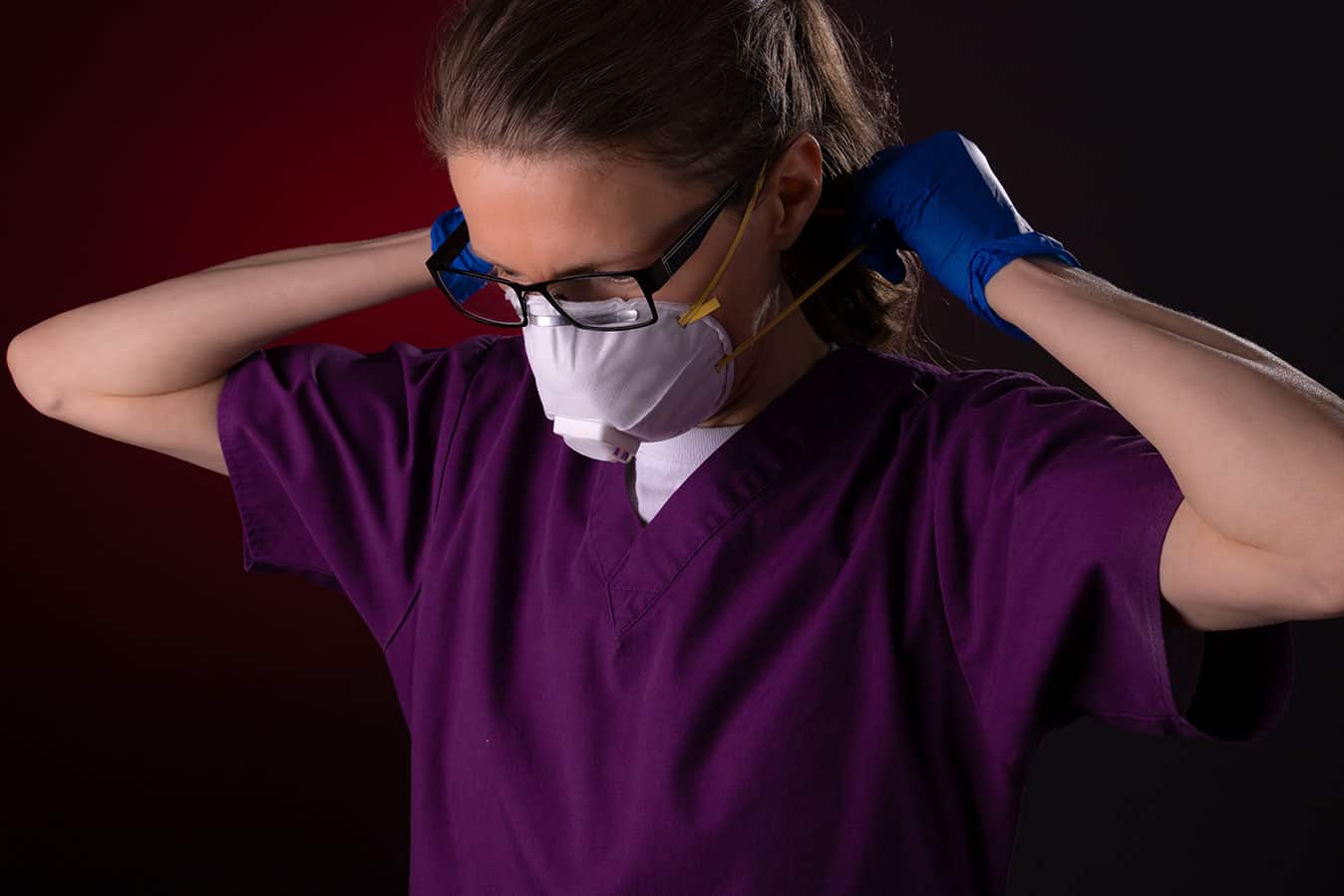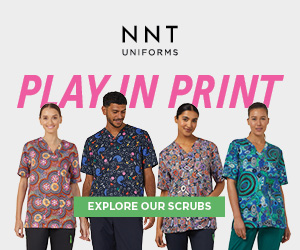The Australian Nursing and Midwifery Federation (ANMF) has urged the federal government and Department of Health to adopt a proactive and precautionary policy response to the provision and use of Personal Protective Equipment (PPE) for healthcare workers battling the COVID-19 pandemic.
In a letter addressed to Secretary of the Department of Health, Dr Brendan Murphy, on the use of PPE by healthcare workers across hospitals, aged care and other health settings, the ANMF said recent data from Victoria’s Department of Health for cases of COVID-19 among nurses showed that 89% of cases recorded in the second wave in the state were acquired at work.
In total, it points out that at least 69% of all healthcare infections have been deemed likely to have been acquired at work. In completed investigations of healthcare worker cases, including workers in aged care and disability, just 6% of infections were acquired outside the workplace.
According to the ANMF, the correct size, fit, use and disposal of PPE is essential to safe, effective and sustainable infection prevention and control when responding to COVID-19.
Citing the Infection Control Expert Group (ICEG) guidance materials on the use of PPE in hospitals (currently under review) and in areas of significant community transmission, which have been endorsed by the Department of Health’s Australian Health Protection Principal Committee (AHPPC), the ANMF expressed its concern with the Guidance Materials and what they mean for its members and other healthcare workers.
“In particular, the ANMF is concerned that these documents may be being used by employers and governments to undermine their legal responsibilities to ensure a healthy and safe workplace under relevant Work Health and Safety laws,” the letter said.
“The ANMF believes these Guidance Materials need to be redrafted as soon as possible in order to ensure that our members and the broader healthcare workforce are protected and that WHS is more prominent in all material produced by the Department of Health.“
Under WHS laws, health employers around Australia are legally mandated to implement what is reasonable practice to eliminate any health and safety risks in the workplace. Whilst the evidence continues to evolve ‘reasonably practicable’ is not a reason to take a moderate approach to WHS. It means the precautionary principle should be applied by policymakers in their approach to pandemic decision-making and healthcare worker safety.”
Specifically, the ANMF recommends the following changes to the Guidance Materials:
Hospital guidance
The ANMF argues the guidance needs urgent revision to ensure that the use of a P2/N95 or equivalent instead of a surgical mask is stipulated in all instances for use in the routine care of patients with confirmed or potential COVID-19, irrespective of whether there are aerosol generating procedures (AGP) involved or not.
The ANMF commended the Victorian Department of Health and Human Services (DHHS) precautionary guidance, which states healthcare workers must wear an N95/P2 respirator in the following instances:
• In settings where suspected or confirmed coronavirus (COVID-19) patients are cohorted and where frequent, prolonged episodes of care are provided, such as care for a patient on a dedicated COVID-19 ward
• In uncontrolled settings were suspected or confirmed COVID-19 patients are cohorted, to avoid the need for frequent changes of N95/P2 respirators
• Where suspected or confirmed COVID-19 patients are cohorted, and there is a risk of unplanned aerosol generating procedures (AGPs) and/or aerosol generating behaviours.
“The ANMF believes the above DHHS guidance must become the very minimum standard throughout Australia and that the Department of Health has a vital role in ensuring that it does.”
The ANMF also calls for amendments to strengthen the wording around fit-testing of all healthcare workers who wear a P2/N95 mask to “mandate fit-testing” and suggests adopting the New South Wales Clinical Excellence Commission’s (CEC) approach to fit-testing and going further by requiring those who wear a P2/N95 mask to undergo a systematic program of fit testing.
“Alleged PPE shortages are not justification for healthcare workers to not have access to the maximum level of protection, especially with stocks increasing rapidly and governments shoring up supplies.”
Significant community transmission guidance
The ANMF also believes the Guidance on the use of protective equipment by healthcare workers in areas with significant community transmission (Significant Community Transmission Guidance) needs to be reworded to come into line with WHS law and precautionary principles.
The guidance states: “There is little clinical or epidemiological evidence of significant transmission of SARS-CoV-2 (the virus that causes COVID-19) by aerosols”.
But the ANMF argues it does not mean there is no clinical or epidemiological evidence of transmission by aerosols, let alone significant transmission.
The guidance recommends P2/N95 masks be worn for the clinical care of patients/residents with suspected or confirmed COVID-19 who have cognitive impairment, and where high numbers of suspected, probable or confirmed COVID-19 patients/residents and a risk of challenging behaviours and/or unplanned aerosol-generating procedures, including intermittent use of high flow oxygen.
The ANMF says the ICEG has acknowledged that a P2/N95 mask may be needed in circumstances beyond those identified in the Hospital Guidance but has been overly cautious in stipulating its advice.
“The ANMF believes it is reasonably practicable for employers to use a P2/N95 mask in other circumstances beyond those mentioned above,” the letter states.
“There is no shortage of the masks available and the Federal Government has had ample time to ensure the long-term viability of mask stocks.
“The Guidance Materials do not place enough emphasis on the basic doctrines of WHS laws. The Department of Health, as the ultimate publisher, should urgently review the Guidance Materials so that health employers recognise the importance of their WHS obligations to implement what is reasonably practicable to eliminate any health and safety risks in the workplace.
“The Department of Health needs to urgently expand the membership of the ICEG to include WHS experts who have particular knowledge of WHS in health and aged care. The ANMF recognises that the infection control expertise on the group is excellent and highly knowledgeable, however to operate at the best level for all stakeholders including workers, the ICEG needs to formally include the WHS perspective.”
Read the ANMF’s full letter to the Department of Health








